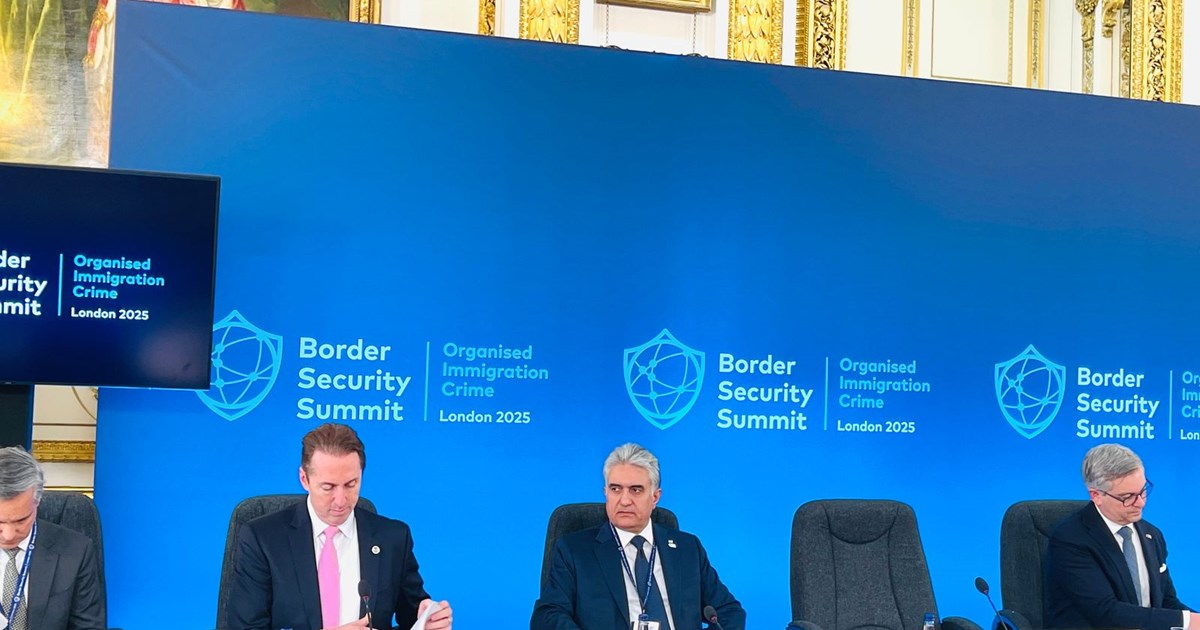KRG Interior Minister Addresses Border Security Summit in London

At the invitation of the UK Interior Ministry, Rebar Ahmed, Minister of Interior for the Kurdistan Regional Government (KRG), participated in the Border Security Summit in London, delivering the Kurdistan Region’s address during the first panel, which included ministers from over 40 countries.
In his opening remarks, Minister Ahmed thanked the UK for the invitation and emphasised the importance of international cooperation in border security and combating organised crime. He then reflected on the historical suffering of the Kurdish people, who have endured war, displacement, chemical attacks, and genocide.
Decades of injustice, particularly under successive regimes in Baghdad, forced many Kurds into exile. Minister Ahmed expressed gratitude to countries that provided refuge during those dark times.
Following the fall of Saddam Hussein’s regime in 2003, hope was rekindled, prompting the return of many Kurds from abroad. These returning citizens brought with them skills, capital, and aspirations, contributing to the reconstruction of a democratic and peaceful Kurdistan. However, the rise of ISIS in 2014 disrupted this progress, halting reverse migration and transforming Kurdistan into a refuge for those fleeing terrorism — particularly Yazidis and Christians who faced genocide.
Many of these internally displaced persons (IDPs) remain in camps due to ongoing instability in their home regions, notably Sinjar and the Nineveh Plains, where the presence of militias and the PKK continues to obstruct safe and voluntary return.
Minister Ahmed highlighted the financial disputes between the KRG and the federal government in Baghdad, as well as the failure to fully implement Iraq’s constitution, as major obstacles to stability and recovery. He called on the international community to support efforts for a democratic and stable Iraq grounded in constitutional principles.
On the issue of migration, he noted that many of those targeted by organised smuggling groups come from border areas and disputed territories under Article 140. These regions are disproportionately affected by regional conflict, a lack of basic services, and threats from terrorist groups. The absence of peace, employment, and infrastructure in these areas drives citizens toward illegal migration.
He stressed that this environment has allowed criminal networks and human traffickers to exploit vulnerable populations both within and beyond the Kurdistan Region.
To address these issues, the KRG has implemented measures to limit smuggling and strengthen resilience. Minister Ahmed outlined ongoing efforts to tackle economic challenges and reduce youth vulnerability. He noted that economic diversification remains a priority for Prime Minister Masrour Barzani’s government, which is working closely with the private sector and travel agencies to disrupt smuggling networks.
Public education campaigns — particularly through social media — have helped raise awareness about the dangers of illegal migration, especially among youth.
In closing, Minister Ahmed highlighted the KRG’s steps to reduce cash dependency and enhance financial transparency. Through the “My Account” initiative, public sector employees are being integrated into formal banking systems. Private sector workers are also transitioning to formal financial structures. Coordination with telecom companies has led to the seizure of thousands of unregistered SIM cards previously used for criminal activities.


